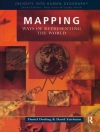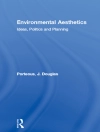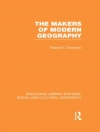In this book international geography educators discuss the ways in which geographical knowledge is recontextualised in schools and consider effective approaches to facilitate, improve and advance geography education in research and practice. It addresses key topics in recontextualising geography such as the epistemic relationships between the university discipline and the school subject, designing and evaluating the geography curriculum, the role of students in the transformation of knowledge in the classroom and selecting and transforming geographical content knowledge for the primary school curriculum. At an international level, the contributors and editors bring together an advanced collection of research and discussion surrounding the opportunities and challenges of recontextualising geography in education. The book is of interest to geography educators internationally, including academics at universities, teachers in schools, and professional geographers with an interestin education.
Tabella dei contenuti
Chapter 1. Introduction: Why Recontextualise Geography in Education? Part I: Theorising Recontextualising Geography.- Chapter 2. The Challenge of Recontextualisation and Future 3 Curriculum Scenarios : An Overview.- Chapter 3. Recontextualisation: Selecting and Expressing Geography’s ‘big ideas’.- Chapter 4. Questioning Recontextualisation: Considering Recontextualisation’s Geographies.0 Chapter 5. Reflecting on Knowledge and Primary Geography.- Chapter 6. A Call to View Disciplinary Knowledge through the Lens of Geography Teachers’ Professional Practice.- Chapter 7. The Role of Students in the Recontextualisation and Transformation of Powerful Knowledge: A Study of 6th form Geography Students.- Chapter 8. Practising Powerful Geographical Knowledge to Develop Understanding of Interdependence.- Chapter 9. Recontextualisation continued: Designing and Evaluating Conceptual Learning in Geography Lessons.- Chapter 10. Teaching about Space and Place – The Example of Everyday Geographies of Young People Living in the Slums of Nairobi, Kenya.- Chapter 11. From Fast Fashion to Slow Fashion – Raising Awareness of Young People for Sustainable Production and Consumption.- Chapter 12. Reflecting on Recontextualising Geography in Education.
Circa l’autore
Dr. Mary Fargher spent a long career teaching geography in London schools and sixth form colleges before moving into geography teacher education and completing her Ph D at University College London, Institute of Education, London, UK. Mary leads and teaches on the MA Education (Geography) lectures on the MA Education and contributes to the PGCE Geography and Undergraduate Geography programmes at UCL. She is currently researching the role of web-based GIS (geographical information systems) in constructing geographical knowledge in school geography. As a member of the Geography Education Research Collective (GERe CO with UK IGU-CGE), Mary works to promote geography education both nationally and internationally.
After teaching geography in schools and sixth form colleges for nine years, Dr. David Mitchell moved into geography teacher education and research at University College London, Institute of Education, London, UK where he also gained his doctorate. Initial teacher education has been a central part of his work as a tutor, subject leader for geography and programme leader, educating teachers as they begin their careers in London schools. His area of research interest is the geography curriculum and particularly the teacher’s role and agency to enact a forward-looking geography curriculum in challenging times. As a member of the Geography Education Research Collective (GERe CO with UK IGU-CGE) David collaborates with a wider community of educational researchers with a shared interest in how a progressive approach to knowledge in different subject disciplines can enhance a child’s education.
Dr. Emma Till is Senior Lecturer in Education at the University of Winchester, UK. Before joining the university, she worked as a classroom teacher and senior leader in a range of primary schools across South-East England and also spent time teaching in South-East Asia. Emma’s research interests are primary teacher generic and subject-specific teacher identity, geography education and phenomenology. She was awarded her Ph D in March 2018 for her thesis entitled ‘Being a geographer: Towards an understanding of Primary Teachers’ Constructs of Subject Specific Identity.’ Emma also works as a member of the Geography Education Research Collective (GERe CO with UK IGU-CGE) to promote geography education both across the UK and internationally.












